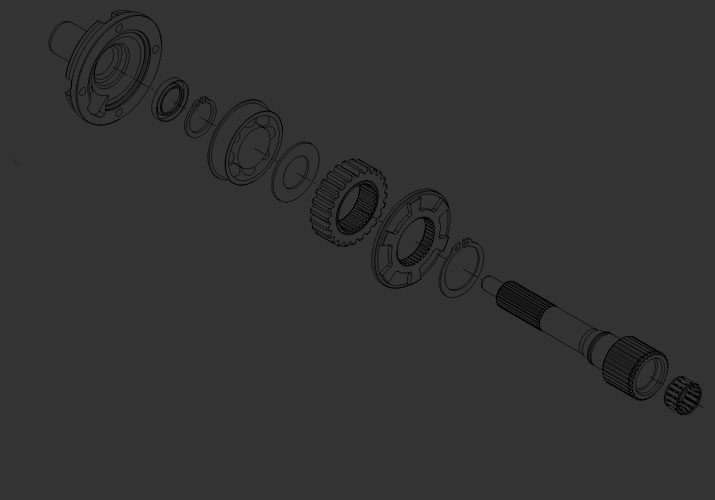BATTERY MAINTENANCE
Batteries are a common problem in a recreational vehicle. This is especially true when an RV is being stored and is not plugged into a shore power source. For your RV to operate smoothly, it is essential that you have a good 12-volt DC (Direct Current) source. Most lights, jacks, power steps, furnaces, refrigerators, slide outs, water pumps and accessories require a good 12-volt DC supply. When an RV is plugged into an AC (Alternating Current) shore power source, a high tech battery charger called a Converter is supplying a DC charge to run the RV
accessories and charge the house or coach batteries. The converter converts 120 Volts AC to approximately 13.5 Volts DC. RV’s use deep cycle 12-volt batteries wired in parallel, or at least two 6-volt batteries wired in series for 12-volt service. The 6-volt batteries have a much longer service life.
Either way, both are used to power the coach or house accessories. These are generally wet cell batteries, so the electrolyte level must be checked regularly. Always refill all wet cell batteries with distilled water and use proper safety precautions as listed later in this article.
Very few recreational vehicles use a deep cycle gel cell battery. This type of battery is low maintenance but requires special charging techniques. Most converter chargers are not capable of properly charging this type of battery; therefore it is not recommended as a replacement battery for most RV‘s.
Starting or Cranking Batteries are designed to always be fully charged. They provide greater cranking amperage to start the engine. These batteries are generally used for the chassis only and most recreational vehicles do not supply charging voltages to this battery from the converter. These batteries usually obtain a charge from the alternator, when the engine is started.
If your RV is in storage for an extended length of time, it is recommended that you have a solar battery charger installed. This will greatly extend the battery life.
Always keep the top of your batteries clean and dry. A dirty battery can have a current drain, causing a discharge across the top of the battery. A mixture of water and baking soda will neutralize the acids and corrosion present on the batteries and in the storage compartment.
It is wise to obtain a voltmeter to check battery voltages periodically. When a unit is not plugged in battery voltage should be no less than 10.5 Volts DC when it is discharged or 12.5 Volts DC when fully charged. When the RV is plugged into a shore power source, the converter should supply between 12.5 Volts DC and 14.2 Volts DC. These same voltages should also be present when shore power is disconnected and while the engine is running and the alternator is charging properly.
You must follow specific precautions to service a battery safely. Batteries produce hydrogen gas, which is extremely explosive and can cause severe burns. Wet cell batteries require lots of ventilation. Some recreational vehicles have the battery in a sealed compartment located inside the unit. These compartments must always be vented to the outside atmosphere.
Always remove any metallic jewelry, wear protective clothing and wear safety eye protection when servicing batteries. Smoking, sparks or flames can produce disastrous results. It is advisable to have a fresh water source available in case of an accident. Flush skin and eyes with plenty of water if this occurs. Always wash your hands with soap and water after any battery service. Always disconnect the black negative (-) terminal first and the red positive (+) terminal last. When reconnecting the batteries, connect the red positive terminal first and the black negative terminal last. It is recommended that you clearly mark the terminal locations before removal to aid in re-installation of the terminals properly.
Never attempt to charge a frozen, swollen or damaged battery. Always disconnect the batteries when using an electric welder on the RV. You must always be careful and use extreme caution when servicing batteries.
If you would like to have a qualified professional test and repair your electrical system, call (850) 866-6999 or visit https://rvtrax.com.
